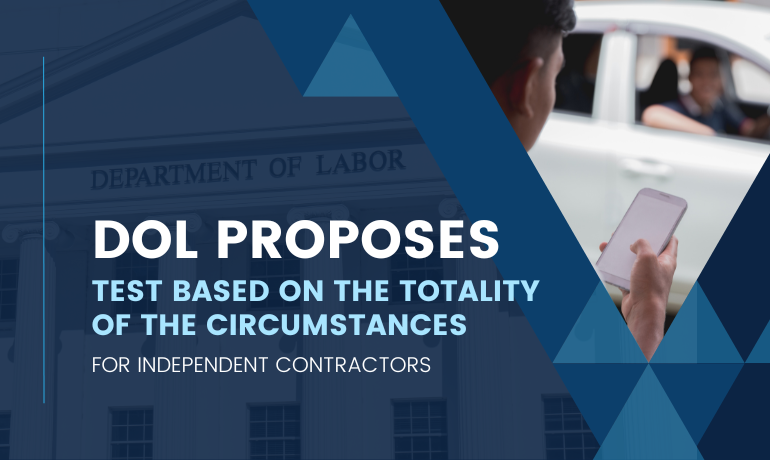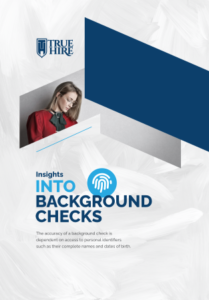Background checks are an essential part of the hiring process and also when recruiting volunteers. Background screening increases the likelihood of finding qualified candidates and ensures that the person you’re bringing onto the team is who they say they are regarding everything from job experience and education level to identity verification and criminal history.
But what happens if you decide to turn down a candidate based on the results of the background check report? You can just casually let them know by phone or email and send them on their way, right? If only it were that simple…
The Need for the Adverse Action Process
The background check process is part of a highly regulated industry of fair credit reporting laws and rejecting an applicant is no exception. Sending the proper letters, notices and copies of reports at the appropriate times is a critical step to keep your company or organization in compliance. Under Fair Credit Reporting Act (FCRA) guidelines, an applicant must be notified that they are no longer being considered for employment, such as revoking a job offer or firing an employee, as a result of information obtained through a background check. To do this, sending both pre-adverse and adverse action packets is required by the FCRA.
And yes, these same FCRA laws apply to volunteers, contractors, interns, and apprentices. According to a 2011 report released by the Federal Trade Commission, background checks conducted on these positions are considered for “employment purposes”.
So how do you begin to implement the adverse action process when deciding not to hire a candidate if that decision was based wholly or in part upon the information contained in the background report?
Sending the Right Documents at the Right Times
First, you must send the applicant a pre-adverse action letter, a copy of the background check report, and a summary of their rights under the FCRA. This can be sent by mail or email. This pre-adverse action packet is the applicant’s first opportunity to dispute the results if they believe information in the report to be inaccurate. You can view examples of all documents discussed in this article by downloading our free FCRA Guidebook.
After sending the pre-adverse action packet, be sure to allow enough time for a response from the applicant; 5-10 days is ideal per FCRA regulations. However, some cities and states have more specific rules on the length of time that is required, so be sure to check your local regulations regarding adverse action.

Handling Applicant Disputes
If the candidate disputes the background check results, a re-investigation will occur and the dispute process will commence. Once the investigation has concluded, the background check company will provide the employer or volunteer organization with a final background report either confirming the original background results or provide updated background results uncovered during the re-investigation. If you decide to hire the applicant, notify them that they have been hired. If you decide to not hire the applicant because of their background check report, then move onto the next step of sending the final adverse action letter.
If the candidate does not dispute, or they do, but it doesn’t change the employment decision, an adverse action letter is sent to the applicant by either mail or email, which specifically revokes any offer of employment or volunteer opportunity and further explains the candidate’s rights. An applicant could still dispute the findings of the background report at this point in the process, but if they do not dispute, then the adverse action process is considered complete.
How True Hire Can Help with Simple Adverse Action Tools
Properly carrying out the adverse action process is the legal responsibility of the company hiring employees or the organization recruiting volunteers. However, True Hire does offer products to assist you with adverse action, saving you valuable time and making your job easier.
The Consequences of Not Following the Process
Overall, the adverse action process is complex and great attention to detail must be given in order to send the right documents at the right times or you could be subject to legal penalties, fines, and potentially a class action lawsuit brought forward by affected applicants, such as was the case with Wells Fargo (settled for $12 million in 2014), Dish Network (settled for $1.75 million in 2016), Target (settled for $8.5 million in 2017), and Amazon (settled for $5 million in 2018), all of whom allegedly failed to properly adhere to the adverse action process set forth by the FCRA.




